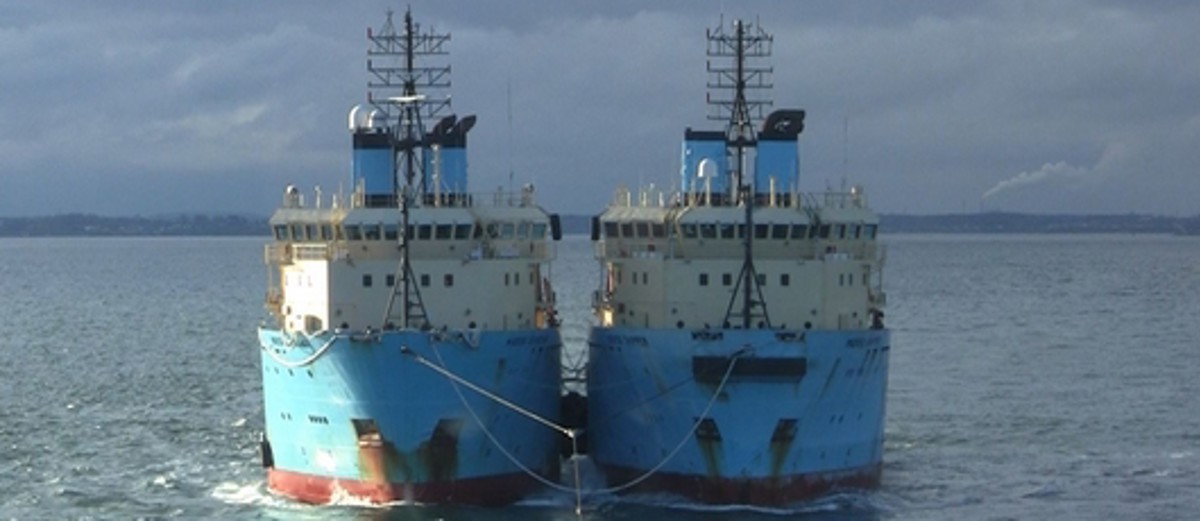Loss of tow and subsequent foundering of two vessels
- Safety Flash
- Published on 7 November 2017
- Generated on 5 March 2026
- IMCA SF 29/17
- 2 minute read
Jump to:
The Danish Maritime Accident Investigation Board (DMAIB) published a Marine accident report on Maersk Battler’s loss of tow and the foundering of Maersk Searcher and Maersk Shipper in the Bay of Biscay on the night between 21 and 22 December 2016.
What happened?
Maersk Searcher and Maersk Shipper were configured in a side-by-side towing setup.
During the passage, the fenders between the vessels on tow failed, and the vessels started to interact. This caused damage to the superstructure, which eventually compromised the watertight integrity of Maersk Searcher and led to water ingress. She capsized and sank, and subsequently Maersk Shipper was pulled under also.
The crew of the towing vessel Maersk Battler carried out a controlled breakage of the towing wire and came loose of the foundered towage.

The DMAIB regards the foundering of the two vessels as:
"...a systemic accident. This means that local and technical circumstances unfolding on board Maersk Battler during the voyage cannot be isolated from the preceding organisational events and circumstances taking place months earlier. Thus, the investigation of the foundering of Maersk Searcher and Maersk Shipper is two-fold. It focuses on the technical circumstances leading to the foundering of the two ships and on the organisational circumstances facilitating these technical circumstances.
"It is concluded in the report that the loss of fenders, collision and flooding of the unmanned ships under tow had been addressed in the risk assessment carried out, and that risk mitigating initiatives were in place for each risk item. However, these initiatives were ineffective. The DMAIB concludes that the risk mitigating strategies were mainly focused on preventing risk factors in isolation and left little or no contingency for acute interaction between the risk factors."
A full marine accident report has been prepared in English and is available at dmaib.com.
Related safety flashes
-
IMCA SF 32/16
29 November 2016
-
IMCA SF 06/10
27 September 2010
IMCA Safety Flashes summarise key safety matters and incidents, allowing lessons to be more easily learnt for the benefit of the entire offshore industry.
The effectiveness of the IMCA Safety Flash system depends on the industry sharing information and so avoiding repeat incidents. Incidents are classified according to IOGP's Life Saving Rules.
All information is anonymised or sanitised, as appropriate, and warnings for graphic content included where possible.
IMCA makes every effort to ensure both the accuracy and reliability of the information shared, but is not be liable for any guidance and/or recommendation and/or statement herein contained.
The information contained in this document does not fulfil or replace any individual's or Member's legal, regulatory or other duties or obligations in respect of their operations. Individuals and Members remain solely responsible for the safe, lawful and proper conduct of their operations.
Share your safety incidents with IMCA online. Sign-up to receive Safety Flashes straight to your email.